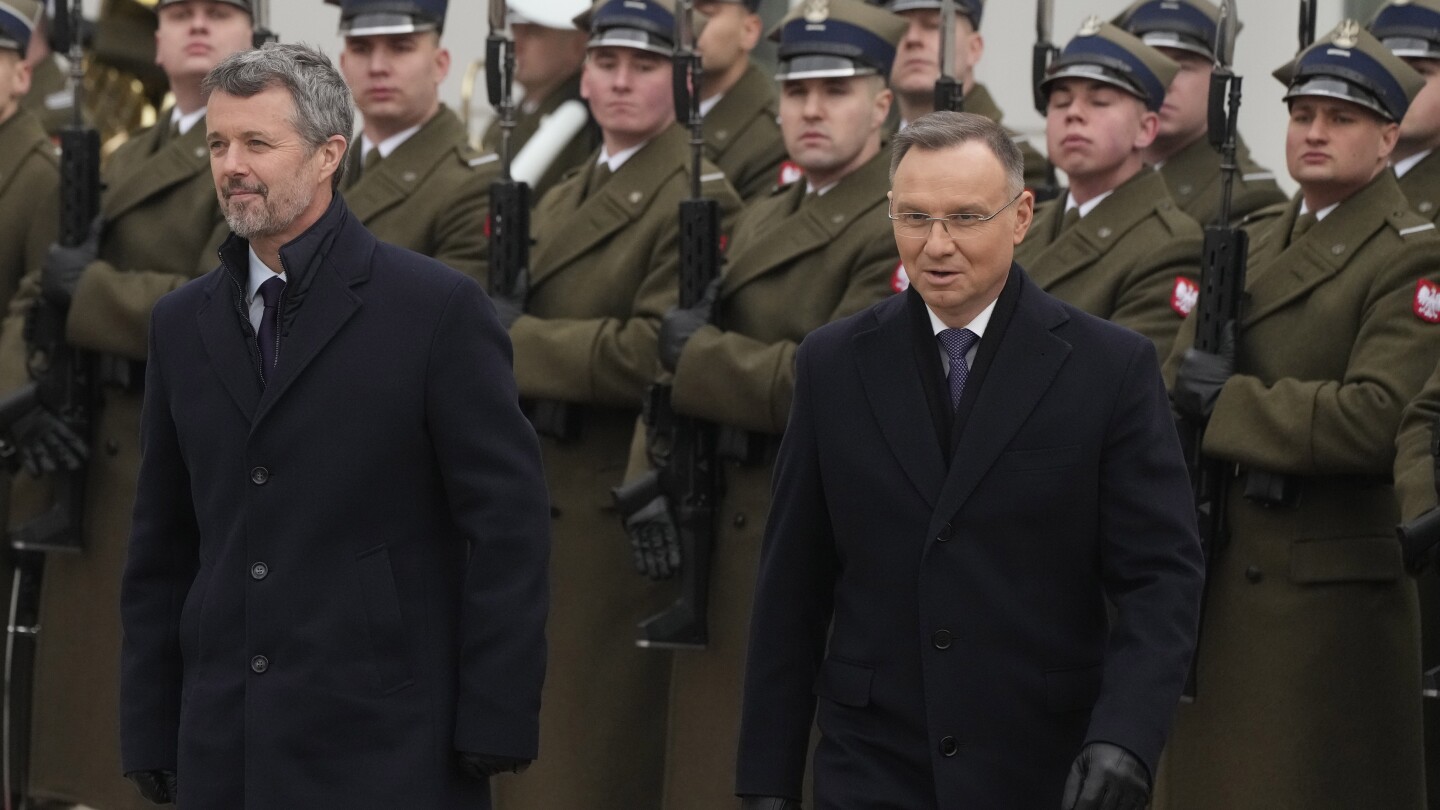WARSAW, Poland (AP) — King Frederik X of Denmark began his first trip abroad as monarch Wednesday with a three-day visit to Poland that is focused on promoting his country’s businesses and climate policies.
Frederik, who was proclaimed king on Jan. 14, received a red-carpet welcome at the presidential palace in Warsaw, where he was greeted by Polish President Andrzej Duda and an honor guard.
Danish monarchs traditionally have traveled to another Scandinavian country first, but Frederik’s visit to Poland was planned before his mother, Queen Margrethe II, announced her surprise abdication in a New Year’s Eve address.
The king’s trip therefore was not being treated as a state visit. He arrived without his Australian-born wife, Queen Mary, but at the head of a delegation of government and business officials.
Later Wednesday, Frederik laid a wreath at the Tomb of the Unknown Soldier, a memorial for soldiers who died defending Poland and he met with the speaker of the Sejm, the lower house of parliament. He is to attend an evening dinner at the Royal Palace in Warsaw alongside Duda.
Denmark’s foreign minister, defense minister and minister for climate, energy and utilities are accompanying the king, and Danish business representatives were expected to attend the dinner.
On Thursday, Frederik plans to watch a signing agreement for a project designed to collect and reuse excess heat from the Warsaw metro by sending it into the city’s district heating system. His agenda on Friday includes visiting NATO’s regional headquarters in Szczecin, a city in northwest Poland.
In his arrival speech, the king said Polish-Danish ties would be strengthened by renewable energy partnerships in the coming years.
“Renewable energy, sustainable production and new technologies are at the core of our shared vision for the future, a safe and thriving world for future generations,” he said.
Denmark prides itself on its commitment to renewable energy. The small Scandinavian country claims that more than 50% of its electricity is supplied by wind and solar power. However, the most widely used renewable energy source in Denmark is bioenergy.

